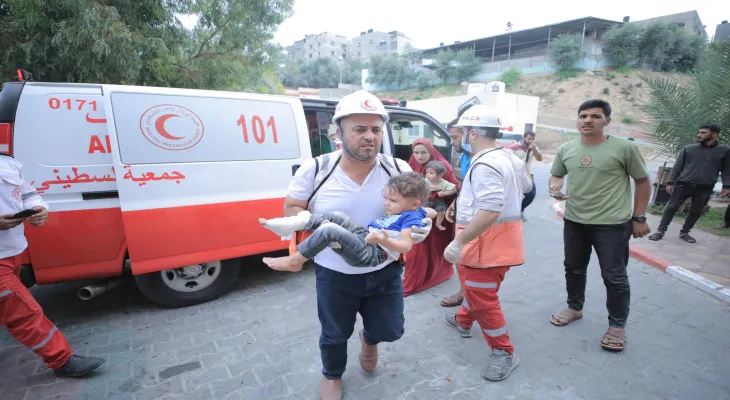Search here
Newspaper
Search here

Arab Canada News
News

Published: January 4, 2024
The Director-General of the World Health Organization, Dr. Tedros Adhanom Ghebreyesus, condemned the continued intense Israeli bombing of the health sector in Gaza, especially the strikes on Al-Amal Hospital in the Gaza Strip, which resulted in the death of five people and caused severe damage to the training center of the Palestinian Red Crescent Society located within the hospital complex.
According to the United Nations Information Center today, Thursday, Dr. Tedros once again added his voice to the repeated international calls for an immediate ceasefire, describing the bombing of the hospital as "unacceptable," adding that the health system in Gaza is already collapsed, as health and aid workers face ongoing obstruction in their efforts to save lives due to hostilities.
Dr. Ghebreyesus explained that many of those sheltering in Al-Amal Hospital in Khan Younis city in the southern Gaza Strip when it was bombed have now left, while those remaining are "very fearful for their safety and plan to leave the place where they sought shelter and protection.
For his part, the head of the World Health Organization emergency health team, Dr. Iyad el Sabarbikoff, confirmed that under international humanitarian law, a hospital must be a protected place, the war must stop, and healthcare workers and health facilities should be protected.
The latest update from the United Nations Office for the Coordination of Humanitarian Affairs pointed to intensive Israeli bombing from air, land, and sea across most of the Gaza Strip, alongside the continued rocket firing at Israel by armed Palestinian groups.
The United Nations Office for the Coordination of Humanitarian Affairs also warned that Gaza is witnessing a developing public health disaster, and that recent mass displacement in southern Gaza is leading to the spread of diseases.
The office reported more than 400,000 cases of infectious diseases since October 7, with about 180,000 people suffering from upper respiratory infections. More than 136,000 cases of diarrhea were reported, half of which are among children under five years old, confirming that its humanitarian partners continue to address the severe shortage of sanitation and safe drinking water in Gaza, despite ongoing challenges facing the response efforts.
The office added that humanitarian partners provide healthcare in shelters with the assistance of 150 medical teams, and that work continues to expand access to primary healthcare services by increasing the number of medical points serving the displaced, as less than half of the allocated 325 shelters have these points available.
The Office for the Coordination of Humanitarian Affairs warned that the United Nations and its humanitarian partners have been unable to deliver urgently needed life-saving humanitarian assistance to north of Wadi Gaza for three days due to delays in access and blockage, in addition to active conflict, reiterating calls for humanitarian organizations to provide aid urgently, safely, sustainably, and without obstacles to the areas north of Wadi Gaza, which have been separated from the south for more than a month.
For its part, the United Nations Relief and Works Agency for Palestine Refugees (UNRWA) confirmed that a rapid response was launched by the agency, UNICEF, and other partners to provide more than 960,000 doses of key vaccines protecting against diseases such as measles, pneumonia, and polio in the Gaza Strip.
Comments